The stomach, as a part of the digestive tract, plays a role in digesting food. Food travels from the mouth and esophagus to the stomach which chemically breaks down the food. The stomach secretes protein-digesting enzymes that require an acidic environment to be produced and to properly perform their function. Acidic pH in the stomach is provided by hydrochloric acid that is secreted by the stomach to aid in the digestion of foods.
The role of hydrochloric acid is to give the optimum pH required for the enzymes to work. Additionally, hydrochloric acid provides a protective mechanism to the body by killing bacteria, viruses, and parasites. The stomach breaks down the proteins when hydrochloric acid mixes with pepsinogen to produce pepsin.
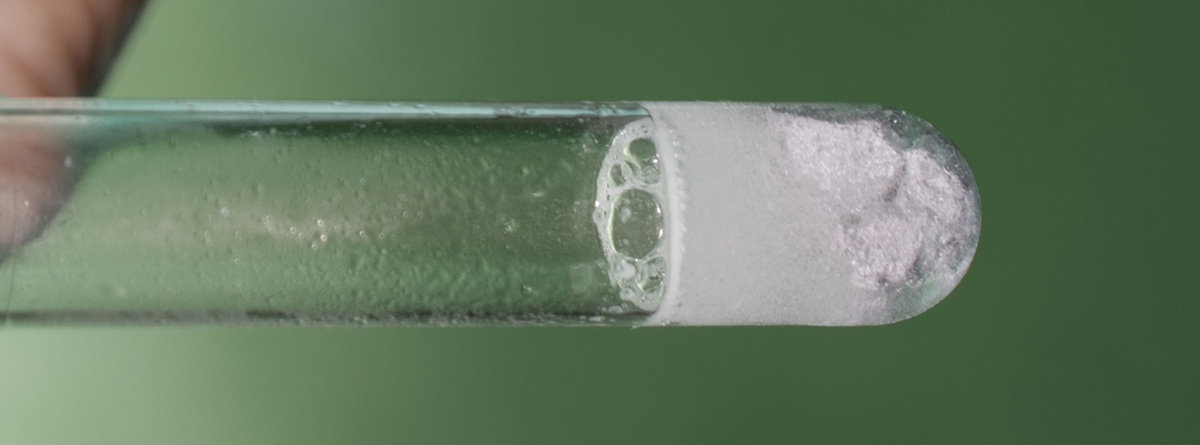
In the stomach, the pH of hydrochloric acid is as low as 1 to 2. This pH can even dissolve solid metals. However, the stomach is protected from hydrochloric acid due to the secretion of a thick mucus protective layer. This layer prevents the cells of the stomach from being affected by hydrochloric acid. Additionally, sodium bicarbonate acts as a buffering agent that prevents damage to the stomach cells.
- HCl is an important component in gastric juice. It is a strong acid produced by the parietal cells in the corpus generating a gastric pH of 2-3. Activation of pepsin and absorption of nutrients relies on an acidic pH in the stomach. HCl is also important in protecting the stomach and intestines from pathogens. Increased gastric pH induced by disease process, reflux of bile or pharmaceuticals allows for bacterial overgrowth in the stomach. These pathogenic bacteria in the hypochlorhydria stomach can produce nitrite and nitroso-compounds, which act as one of the triggers in the atrophy-metaplasia-dysplasia-carcinoma pathway.
- Fasting gastric juice acidity of 165 healthy subjects and 346 patients with esophageal ulcer (n = 21), gastric ulcer (n = 136), duodenal ulcer (n = 100) or gastric cancer (n = 89) were measured and compared. Additionally, gastric specimens were taken from the antrum and body for rapid urease test and histological examination.
- Multivariate analysis revealed that bile stain of gastric juice, high acute inflammatory score of the corpus, and atrophy of the corpus were independent risk factors for the development of gastric hypoacidity with odds ratios of 3.1 (95% CI: 1.3-7.3), 3.1 (95% CI: 1.2-7.9) and 3.5 (95% CI: 1.3-9.2).
- Esophageal ulcer and duodenal ulcer patients had a lower pH level (1.9 and 2.1 vs 2.9, both P
Low Hydrochloric Acid Secretion
Decreased secretion of hydrochloric acid in the stomach is a condition known as hypochlorhydria. On the other hand, achlorhydria represents the total absence of hydrochloric acid in gastric secretion.
Hypochlorhydria can occur due to vitamin and nutrient deficiency, bacterial infection (Helicobacter pylori), improper use of heartburn medications or gastric bypass surgery. Decreased hydrochloric acid in the stomach causes several symptoms such as foul-smelling stool and gas, bloating and belching, diarrhea, undigested food in the stool, iron and other mineral deficiency, drowsiness after a meal, and others.
Hypochlorhydria can also lead to chronic intestinal infections. Hypochlorhydria, as well as achlorhydria, can be treated with acid supplements or the intake of foods that can help in the digestion process or encourage the secretion of hydrochloric acid in the stomach. Such foods are cayenne pepper, vinegar, and digestive enzyme supplements.
Excess Hydrochloric Acid Secretion
If there is too much hydrochloric acid in the stomach, it can result in conditions such as Zollinge-Ellison syndrome and hypercalcemia. Excess amount of the strong acid in the stomach is caused by increased gastrin levels that stimulate the secretion of hydrochloric acid. This condition causes stomach aches and stomach ulcers.
Pain in the stomach is also present due to excess amount of the acid, which leads to appetite loss. The condition can be treated with antacid medications or solutions. Spicy foods must be eliminated from the diet since such foods make the symptoms worse.
- integrativepro.com/blogs/articles/the-role-of-hydrochloric-acid-hcl-in-aiding-digestion
- www.webmd.com/digestive-disorders/what-is-hypochlorhydria
- Photo courtesy of Adam Rędzikowski by Wikimedia Commons: commons.wikimedia.org/wiki/File:Tin_and_hydrochloric_acid.jpg






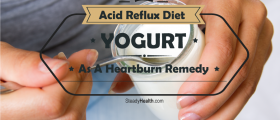
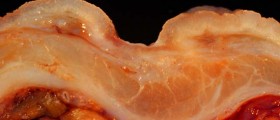





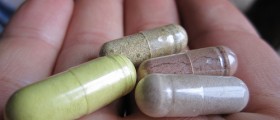

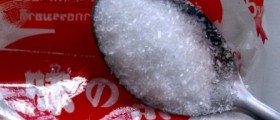
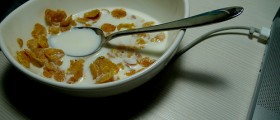
Your thoughts on this
Loading...